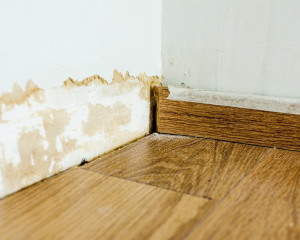Landlord insurance, what does it cover?
Owning a rental property comes with risks. That’s why landlord insurance is so important to protect your investment. This special type of property insurance covers problems that regular home insurance doesn’t.
Based on recent research, we’ve found the five biggest risks that landlords face. Understanding these can help you choose the right cover to protect your property.
1. Water Damage: Burst Pipes and Leaks
Water damage is the number one reason landlords need insurance. About one-third of all landlord insurance claims involve water problems.
When pipes burst or appliances leak, the damage can spread quickly. According to the National Residential Landlords Association, the average cost of these claims jumped from £2,844 in 2020 to £7,501 in 2024. In one extreme case, a single leak cost £187,207 to fix!
Most water damage (about 70%) comes from burst pipes, especially during cold weather. Good building insurance covers the costs of these repairs, giving you peace of mind.
How to reduce the risk of water damage:
| Preventative Measure | Why It Helps |
|---|---|
| Regular property inspections | Identify potential leaks before they get worse |
| Maintain heating during winter | Keep the temperature around 12°C even in empty properties |
| Ensure proper pipe insulation | Prevent pipes from freezing and bursting |
| Ask tenants to report problems quickly | Address small issues before they become big problems |
2. Accidental Damage
Accidents happen in any home. Landlord insurance covers accidental damage caused by tenants to your property.
Common examples include:
- Broken windows
- Damaged flooring
- Broken pipes from DIY attempts
- Damage to fixtures and fittings
As a landlord, you’re usually responsible for fixing accidental damage. That’s why having this cover is essential for your rental property.
Research shows that 18% of landlords are surprised by how much damage normal use can cause. Good landlord insurance covers these unexpected costs.
3. Building and Contents Insurance
This is the foundation of any landlord insurance policy. It protects both your property structure and the things you own inside it.
Buildings Cover
Building insurance protects the structure against:
- Fire and smoke damage
- Storm and flood damage
- Subsidence (when the ground sinks)
- Impact damage (like fallen trees)
Remember that rebuilding costs have gone up a lot recently. Ensure your building’s coverage is enough to rebuild your property if needed.
Contents Covers
If you provide furnished properties, contents insurance is vital. It covers items you own like:
- Furniture
- Appliances
- Carpets and curtains
- Fixtures and fittings
Note that your tenants need their own insurance for their personal belongings.
4. Liability Protection
Liability protection covers you if someone gets hurt on your property. This part of landlord insurance covers legal expenses if a tenant, visitor, or worker makes a claim against you.
This cover includes:
- Legal costs
- Compensation payments
- Court expenses
Without liability protection, you could face huge bills if someone is injured on your property. According to research, about 15% of landlords regret not having enough insurance to cover these unexpected costs.
The UK government’s guidance on renting out a property explains your legal responsibilities as a landlord, which can help reduce these risks.
Ways to reduce liability risks:
- Keep your property well-maintained
- Fix safety issues quickly
- Follow all safety rules
- Keep good records of property conditions
5. Loss of Rent
One of the biggest worries for landlords is when tenants stop paying rent. Loss of rent cover protects you in these situations.
This protection typically covers:
- Unpaid rent from tenants
- Lost income when the property can’t be rented due to damage
- Legal costs for eviction
This cover is especially valuable during tough economic times. It helps you only pay your mortgage and bills, even when rent isn’t coming in.
For landlords with mortgages, even a few months without rental income can cause serious money problems. Loss of rent insurance gives you financial protection and peace of mind.
Why Complete Landlord Insurance Matters
As research shows, landlords face many risks that can affect their property and income. Water damage, accidental damage, building and contents damage, liability claims, and loss of rent are the most common problems that good landlord insurance covers.
Regular home insurance doesn’t cover rental activities. That’s why specialised landlord insurance is so important – it’s designed specifically for rental properties.
At Trident Insurance, our commercial landlord insurance covers all these key risks, protecting your property investment and giving you peace of mind.
Frequently Asked Questions
Is landlord insurance legally required?
No, it’s not legally required in the UK. However, if you have a buy-to-let mortgage, your lender will probably require at least buildings insurance. Even though it’s not a legal requirement, landlord insurance is strongly recommended.
Does landlord insurance cover damage caused by tenants?
Most landlord insurance covers accidental damage caused by tenants. For deliberate damage, you might need extra cover. Check your policy to see exactly what tenant-related damage is included.
Can I claim for loss of rent if my property is damaged?
Yes, if your policy includes loss of rent cover, you can claim for lost income if your property becomes uninhabitable due to an insured event like fire or flood damage. This ensures you still receive income while repairs are made.
How is landlord insurance different from regular home insurance?
Regular home insurance is for owner-occupied homes and doesn’t cover rental activities. Landlord insurance specifically covers risks related to tenants and rental properties. If you’re renting out a property, you need proper landlord insurance.
Get Protected Today
Don’t wait until it’s too late. Contact us today for an insurance quote and make sure your rental property has the protection it needs. Our team at Trident Insurance can help you find the right landlord insurance coverage for your specific needs.

